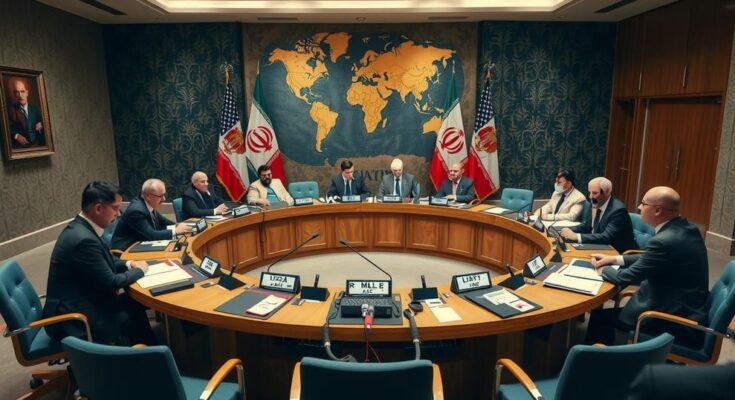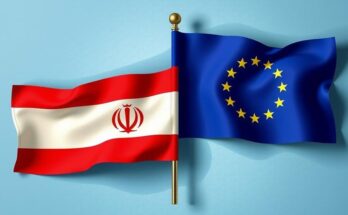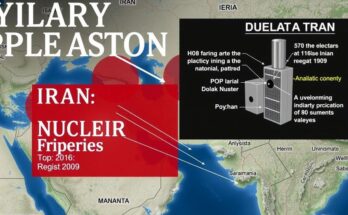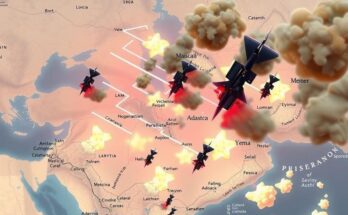The United Nations Security Council is scheduled to convene an emergency meeting to address Israel’s military strikes on Iranian positions. Following heightened tensions due to missile exchanges between Israel and Iran, Iranian officials have raised concerns over threats to international peace. In response to the crisis, Egypt has proposed a ceasefire in the Israel-Hamas conflict, aiming to facilitate humanitarian aid in Gaza amid the ongoing violence.
The United Nations Security Council is convening an emergency meeting on Monday to deliberate the escalating tensions between Israel and Iran following Israel’s military strikes against Iranian missile facilities. The meeting was prompted by Iran’s request, which received backing from Algeria, China, and Russia. Iran’s Foreign Minister, Abbas Araqchi, conveyed that Israel’s actions pose a serious threat to international peace and exacerbates instability in an already tumultuous region. The retaliatory strikes carried out by Israeli jets early Saturday were part of a response to an earlier missile attack from Iran, where approximately 200 ballistic missiles were aimed at Israel amid ongoing conflicts involving Iranian affiliates Hamas and Hezbollah. Iran’s Supreme Leader, Ayatollah Ali Khamenei, advised against both exaggeration and dismissal of the situation, while refraining from calling for immediate retaliation. This incident marks Israel’s first pronounced offensive against Iran. Israeli Prime Minister Benjamin Netanyahu asserted that the strikes successfully undermined Iran’s military capabilities and missile production efforts. In a related matter, Iraq lodged a complaint with the U.N., highlighting Israel’s violation of its airspace during the operation against Iran. On the ground, Israeli forces conducted additional airstrikes in southern Lebanon, resulting in multiple fatalities. Egypt’s President Abdel-Fattah el-Sissi proposed a two-day ceasefire in the ongoing Israel-Hamas conflict in Gaza, which would also facilitate the release of hostages held by Hamas. This proposal, part of a broader effort involving the United States and Qatar, aims to provide humanitarian aid to Palestinians in Gaza. International engagement continues, with Israel’s Mossad Chief meeting with Qatari and U.S. officials amid this intensifying conflict. The recent skirmishes began with a significant attack from Hamas on October 7, resulting in the loss of 1,200 lives and the capture of around 250 hostages. Israel’s subsequent military actions in Gaza have purportedly claimed nearly 43,000 Palestinian lives, according to reports from the region’s health ministry.
The conflict in the Middle East, particularly between Israel and Iran, has been marked by a series of retaliatory strikes and escalating military engagements. The latest tensions arose after Iran’s missile attacks against Israel, prompting Israeli airstrikes aimed at Iranian military capabilities. This backdrop of military confrontations is set against a broader context of geopolitical interests, where regional powers and allied nations such as the U.S. and several Middle Eastern countries play crucial roles in mediation and conflict resolution.
The emergency meeting at the United Nations Security Council exemplifies the international community’s concern regarding the escalating conflict between Israel and Iran. The ongoing military actions and associated casualties underscore the volatility of the situation in the Middle East. Meanwhile, initiatives such as President el-Sissi’s proposed ceasefire signify attempts to address the humanitarian crisis resulting from prolonged hostilities in Gaza. The outcomes of these discussions will likely have significant implications for regional stability.
Original Source: www.voanews.com




